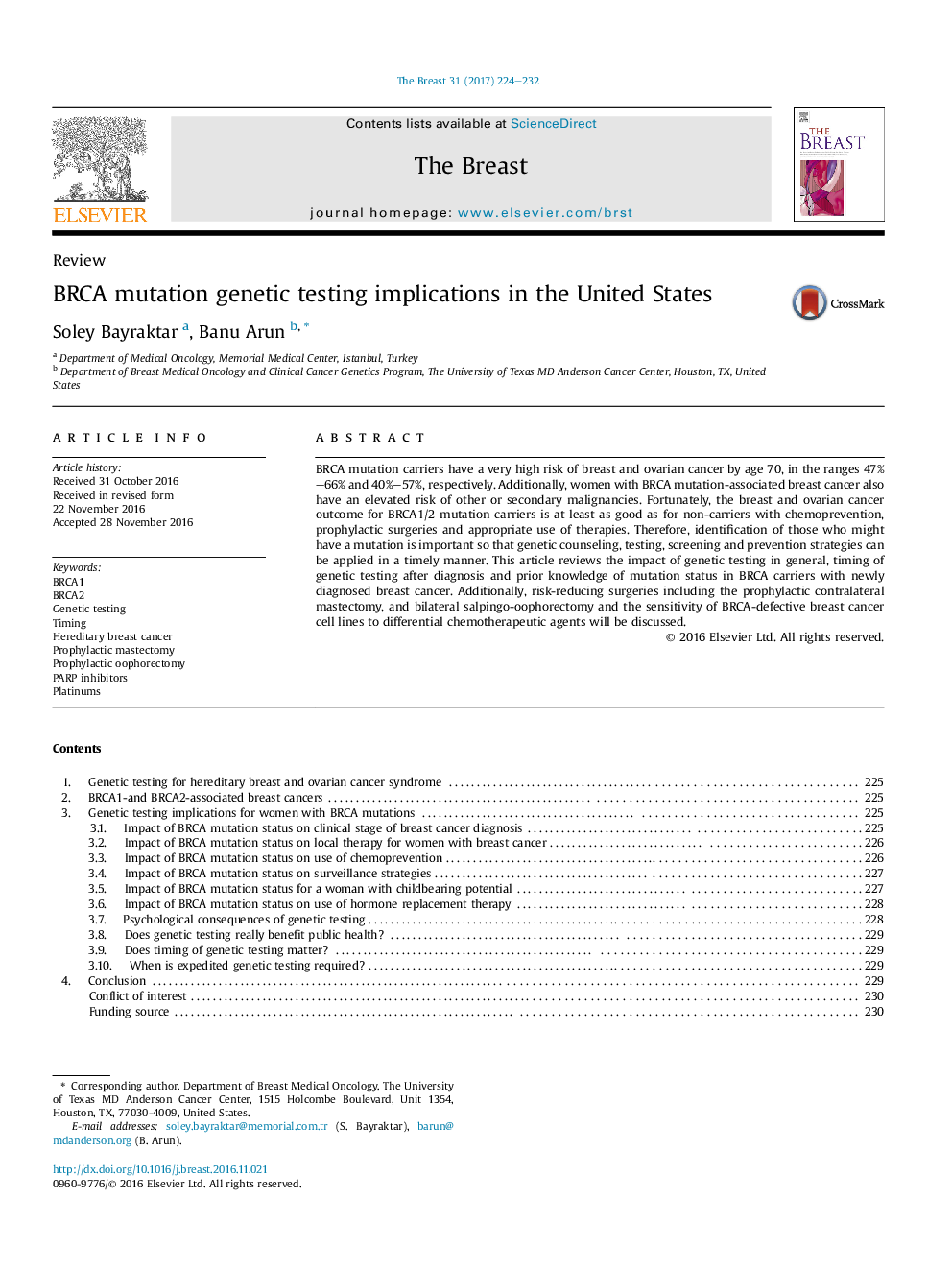| Article ID | Journal | Published Year | Pages | File Type |
|---|---|---|---|---|
| 5693742 | The Breast | 2017 | 9 Pages |
Abstract
BRCA mutation carriers have a very high risk of breast and ovarian cancer by age 70, in the ranges 47%-66% and 40%-57%, respectively. Additionally, women with BRCA mutation-associated breast cancer also have an elevated risk of other or secondary malignancies. Fortunately, the breast and ovarian cancer outcome for BRCA1/2 mutation carriers is at least as good as for non-carriers with chemoprevention, prophylactic surgeries and appropriate use of therapies. Therefore, identification of those who might have a mutation is important so that genetic counseling, testing, screening and prevention strategies can be applied in a timely manner. This article reviews the impact of genetic testing in general, timing of genetic testing after diagnosis and prior knowledge of mutation status in BRCA carriers with newly diagnosed breast cancer. Additionally, risk-reducing surgeries including the prophylactic contralateral mastectomy, and bilateral salpingo-oophorectomy and the sensitivity of BRCA-defective breast cancer cell lines to differential chemotherapeutic agents will be discussed.
Keywords
Related Topics
Health Sciences
Medicine and Dentistry
Obstetrics, Gynecology and Women's Health
Authors
Soley Bayraktar, Banu Arun,
